All our hospital sites are now smoke free
Cleaner air for all our patients, visitors and colleagues
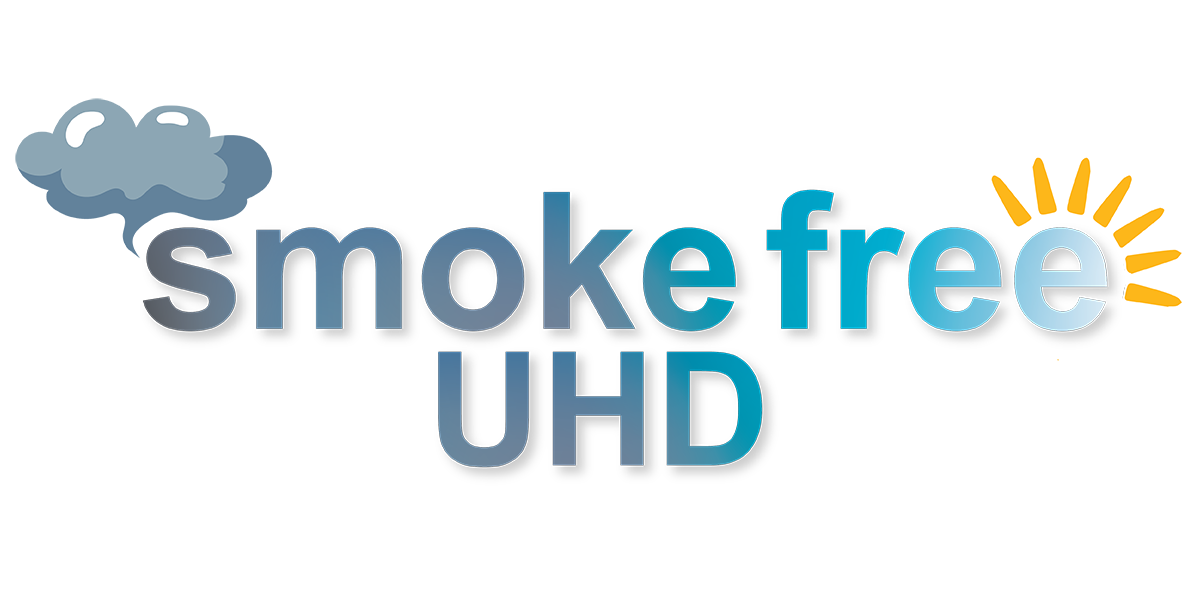
Our hospital trust is now smoke free – that means no smoking on any of our grounds, including entrances, car parks, and outdoor areas. This applies to our patients, our staff, our visitors and contractors.
Your support makes a difference. Thank you for helping us care for each other and our shared environment.
Support for you to stop smoking
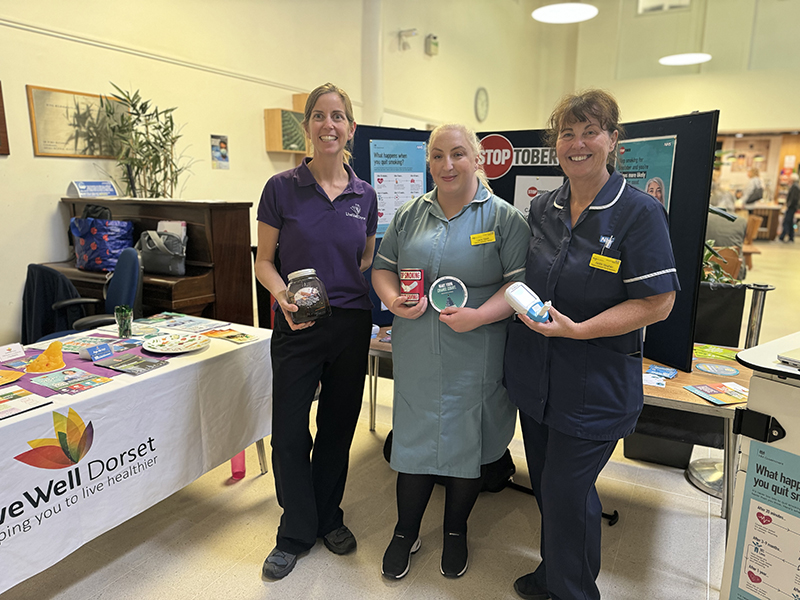
Our Tobacco Addiction Care and Treatment Service Team is available to support you during your hospital stay. Our team is committed to helping patients and their loved ones remain smoke free and we aim to see all smokers, providing guidance and assistance to promote recovery and wellbeing. If you would like to be seen during your hospital stay, please let the team looking after you know.
Our Smoking in Pregnancy Team also offers support to pregnant women and their families throughout their time with us.
"Our aim is to support pregnant women and their families to quit smoking in a supportive and non-judgmental way, and provide a 'smokefree' start in life for their baby..."
Our dedicated teams are also on hand to support staff to quit smoking.
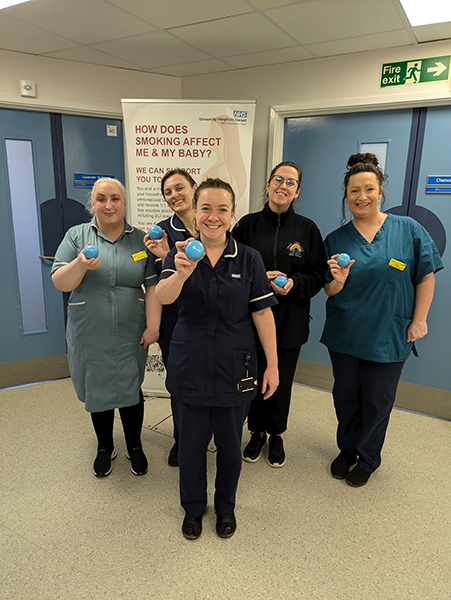
Can I vape?
Considerate vaping is currently allowed on our grounds but please make sure you are at least three metres away from doors and windows and avoid vaping in front of children.
Why is UHD smoke free?
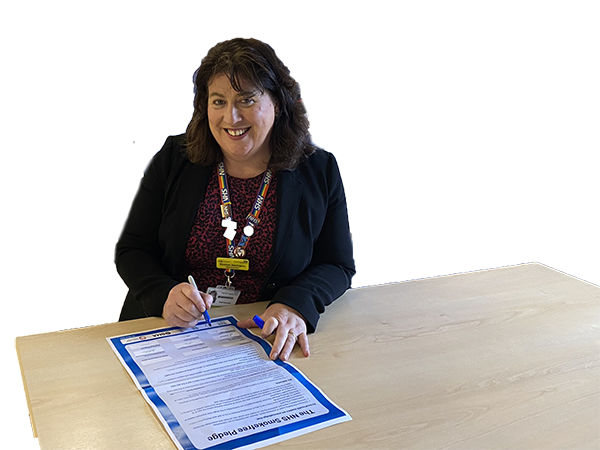
The NHS increasingly cares for people with long-term health conditions, and we must do more to create an environment that supports healthier choices. Tobacco is the leading cause of preventable death so we need to take proactive steps to prevent the very diseases we frequently treat.
Even if you don't smoke, exposure to smoke increases health risks for vulnerable patients, children, and non-smokers. By making our hospital 100% smoke free, we are protecting everyone's health and offering support to those who want to quit or temporarily abstain.
"We are here to look after your health and we prioritise the wellbeing of our community, our staff, and our environment - providing a smoke free environment and supporting people to quit is a really important part of that..." Siobhan Harrington, CEO
What illnesses can smoking cause?
– A progressive lung disease that causes breathing difficulties. The risk of COPD doubles for smokers over 35.
– Smoking damages blood vessels, increasing the risk of heart attacks and strokes, especially after 35.
– Smokers over 35 face a dramatically higher risk of developing lung cancer and other smoking-related cancers.
– Smoking increases the risk of complications, low birth weight, and stillbirth.
Help for visitors
If you are a visitor to UHD and are thinking of quitting smoking, please see the fantastic service free for all in the community offered by Live Well Dorset.
For more information please see our LiveWell Dorset support page.
Patient Safety Incident Response Framework
To improve our approach to responding to patient safety incidents, we have implemented NHS England's Patient Safety Incident Response Framework (PSIRF).
The video below introduces PSIRF, and you can also visit the NHS England website for more information.
What is PSIRF?
PSIRF sets out how NHS organisations respond to patient safety incidents, and ensures compassionate engagement with the patients affected and their families. It supports the key principles of a patient safety culture, focusing on understanding how incidents happen, rather than apportioning blame - allowing for more effective learning, and ultimately safer care for patients.
What's happening at UHD?
We have developed a Patient Safety Incident Response Plan which will identify our individual patient safety incident profile and review existing improvement work to identify the areas that will benefit most from learning and maximise the opportunities for improvement. You can read the plan, and our PSIRF Policy here:
What does it mean for investigations?
Some incidents will qualify for a Patient Safety Incident Investigation but there will be others where alternative responses, such as case note reviews, open conversations involving the team or after-action reviews will be indicated. In some cases, where it is already clear why the incident happened, it will be more appropriate to concentrate on making improvements rather than spending more time on investigations.
Essentially, there will be fewer formal investigations of incidents, but staff will be more likely to be involved in other approaches to learn from incidents and improve patient safety.
If you have questions or would like to get involved please contact our Patient Safety Team via This email address is being protected from spambots. You need JavaScript enabled to view it..
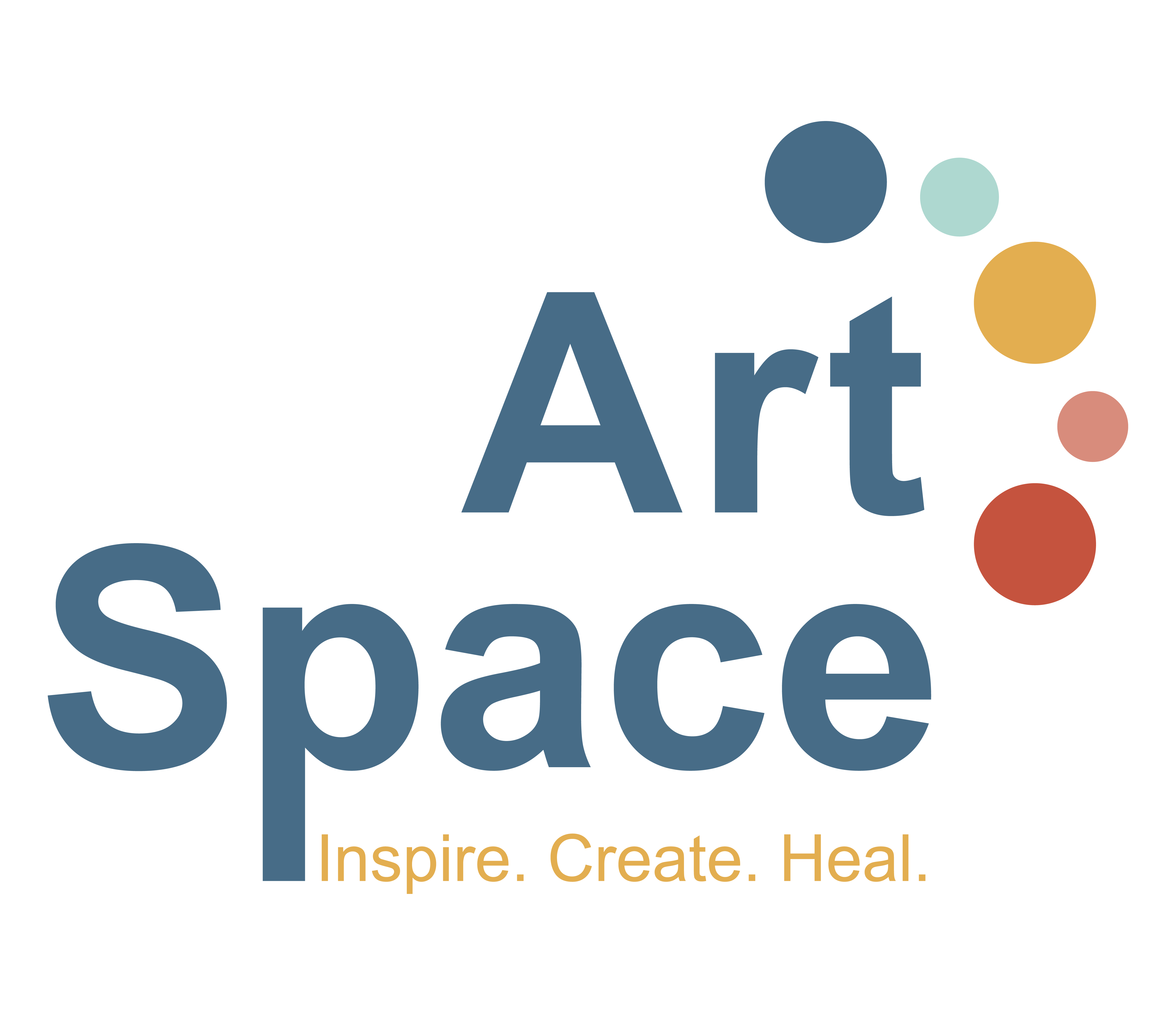
At UHD we are developing creative community projects and commissioning professional artwork at our three hospital sites. New and existing artwork will form the basis of a wider programme of creative opportunities for patients, staff and visitors. We aim to provide inspiring encounters with art in the most unexpected of places, for everyone.
Public art commissions, community art projects, art and sculpture trails and a permanent gallery area will create a welcoming environment and improve wellbeing for public visitors to the hospital. Art initiatives across the hospitals will improve staff morale and cohesion, recruitment and retention. These initiatives will include staff, patient and community participation projects in a range of artforms.
Our arts strategy
Art on the walls
Beach installation
The BEACH building at the Royal Bournemouth Hospital opened in Spring 2025. It will feature a professional arts commission at the entrance. This commission, created by an artist with links to the local area, will include opportunities for staff, patient groups and the local community to contribute to the artwork created. The final outcome will form a focal point for all art commissions and initiatives across the hospital.
Sub-station community project
As this power station keeps the Royal Bournemouth Hospital running, so the skills and talents of local community groups, emerging artists and our student populations keep our local creative culture current and vibrant. An ongoing biennial project at this site right at the heart of the hospital will celebrate and share work created by these groups. Think of this as the hospital’s equivalent to Trafalgar Square’s ‘Fourth Plinth’, showcasing the best of emerging and community art from our region.
Sculpture and art trail
Existing and newly commissioned artwork will form an arts trail across all three hospital sites which patients, staff and visitors can explore.
The beautiful lake at Royal Bournemouth Hospital will inspire and host a sculpture trail, in partnership with local emerging and established sculptors’ initiatives.
Gallery space
The hospital gallery space will host regularly changing exhibitions that:
• Celebrate partnerships with local cultural settings and initiatives (such as the Russell Cotes Museum, Poole Lighthouse and the Bournemouth Emerging Arts Festival).
• Welcome visiting exhibitions from other NHS Trust arts projects.
• Showcase UHD / Bournemouth University research projects and the many talents of UHD’s creative staff.
Any sales of artwork will generate income for further arts initiatives in the hospital.
Art on the wards
Patient programmes
Existing initiatives in our hospitals already utilise art to improve patient experience. The art strategy will support and celebrate these projects, extending them with input from music, dance and visual art specialists. We will work closely with individual wards and departments to plan bespoke projects. We will make sure patients differing needs and requirements are catered for.
Artist-in-residence programme
Our artists-in-residence will create new artwork across all sites, also working with staff to develop ideas whilst sharing their specific skills and techniques.
Staff provision
Practical ‘Have a go’ regular arts events will be organised for staff, with a variety of workshops ranging from jewellery making to ceramics. Our talented staff will support with the facilitation of some sessions, while others will be facilitated by artists involved in commissions or exhibitions at our hospitals. ‘Closed’ sessions will offer opportunities for clinical staff teams to decompress together and ‘open’ sessions will provide an opportunity for staff across the Trust to get to know each other, with creative activity inspiring communication and connection.
By working in partnership with the PALS and Volunteers teams on both of these initiatives, we can contribute to UHD strategies such as Thrive Live health and wellbeing events and the Volunteer training program.









